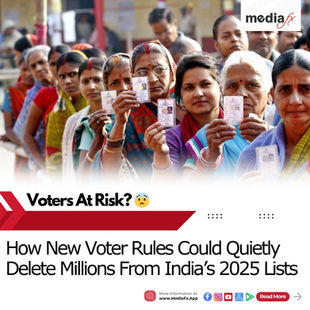😲 India-Pakistan Boycott Flops? Suryakumar Refuses Handshake After Win 🇮🇳
- MediaFx

- Sep 15, 2025
- 2 min read
TL;DR; Despite massive boycott calls on social media after the Pahalgam terror attack, India still tuned in big time for the Asia Cup T20 clash against Pakistan. While stadiums saw a few empty seats and broadcasters faced some ad losses, the match was still watched across cities, streets, and screens. Post-match, Suryakumar Yadav refused to shake hands with the Pakistani captain, and Pakistan skipped the ceremony. Emotions ran high — but cricket took centre stage.

The Boycott That Didn’t Work
Right after the Asia Cup match was announced, emotions exploded. Online, hashtags like #BoycottINDvsPAK trended for days. Delhi’s AAP leader Saurabh Bharadwaj even burned an effigy, and families of the Pahalgam attack victims publicly appealed to people not to watch the game.
But when match time arrived — India couldn’t stay away.
Everyone Was Still Watching
From Delhi to Hyderabad, pubs, cafes, and streets were full of match viewers. Traffic jams had people watching on mobile phones. Even local chai shops were giving live commentary.
Though the Dubai stadium wasn’t completely packed — something rare for an India vs Pakistan clash — Indian screens were definitely lit up.
Smart Moves by Broadcasters
Sony Liv and advertisers had already sensed a dip coming. Many shifted their ad focus to the UAE market, especially NRIs. But still, the match saw an estimated ₹90–₹100 crore loss in ad revenue due to the controversy.
The boycott had a cost — but not enough to stop the nation from tuning in.
The Handshake That Didn’t Happen
After India’s win, skipper Suryakumar Yadav refused to shake hands with Pakistan captain Salman Ali Agha — not once, but twice. It was quiet, but loud enough to make headlines.
Then, the Pakistani team skipped the post-match ceremony completely. No explanations, just silence.
Suryakumar later said the victory was dedicated to India’s armed forces and the victims of the terror attack — winning respect from many.
Public Mood: Divided But Loyal
Many youth said they didn’t want to support Pakistan in any way — and refused to watch. But a majority felt watching the match didn’t mean forgetting what happened.
One Delhi youth said, “Cricket gives us a sense of unity. I watched for India, not for Pakistan.”
Also, the match was scheduled for a Sunday — ideal timing to pull in viewers. Coincidence? Probably not.
MediaFx Opinion: Emotions Are Real, But So Is the System
Public anger is justified. India is still mourning. But real justice comes from action, not emotional policing. Asking the public to stop watching cricket doesn’t fix anything. Accountability should be aimed at the ones causing violence — not the youth watching a game.
Let people feel pain and pride together. Let them grieve and cheer. That balance is what makes a strong society.













































